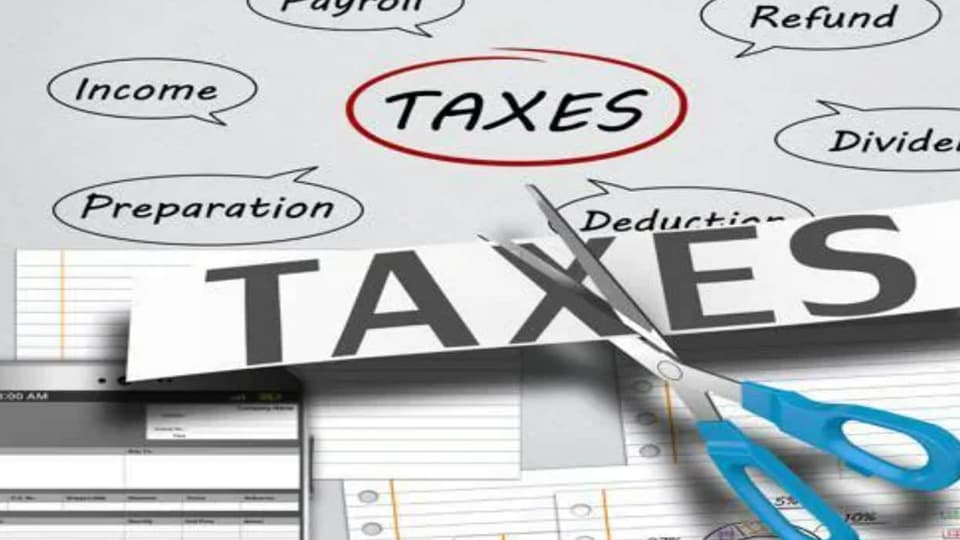
INCOME TAX: HOW CAN YOU ESCAPE PAYING TAX ON ₹10 LAKH IN ANNUAL INCOME?
The Union Budget 2024 brought substantial revisions to the new tax system, enhancing its appeal to taxpayers. The standard deduction has been raised from ₹50,000 to ₹75,000 in the new tax regime introduced in this year’s budget announcement. Individuals earning up to ₹7 lakh per year will be exempt from paying income tax.
The objective of these changes is to offer relief to taxpayers and streamline the tax system. However, if your salary exceeds ₹7.5 lakh, you can still reduce your entire tax liability. Know how you can escape paying tax even on your yearly income of ₹10 lakhs.
Relevant sections under the old tax regime
To maximize tax savings on an income of up to ₹10 lakh, the old tax regime is usually more advantageous. This is because the old regime provides a broader array of deductions and exemptions, including:
Section 80C: Investments in PPF, EPF, ELSS, and other tax-saving instruments. Section 80C of the Income Tax Act permits a maximum deduction of Rs. 1.5 lakh per financial year.
Taxpayers can claim this deduction through investments in popular schemes such as PPF, EPF, and NSC. Other eligible options include:
- Equity Linked Savings Schemes (ELSS)
- Tax-saving fixed deposits
- Life insurance premiums (subject to specific conditions)
- Tuition fees for children
- Principal repayment on home loans
By strategically utilizing these options, taxpayers can substantially lower their taxable income and, therefore, their tax liability. In this case, the taxable income will be ₹8 lakh after deducting an additional ₹1.50 lakh from ₹9.50 lakh.
Section 80CCD (1B): In addition to the ₹1.5 lakh limit under Section 80C, contributions to the NPS Tier I account are eligible for an additional deduction of up to ₹50,000 under Section 80CCD(1B). Depending on your tax bracket, you may be able to save more money on taxes by investing up to ₹50,000 in NPS. In this instance, the taxable income would be ₹7.50 lakh after deducting ₹50,000 from ₹8 lakh.
Home loan interest: Deduction available under Section 24B. Section 24(b) of the Income Tax Act permits homeowners to claim a deduction of up to ₹2 lakhs on the interest paid on their home loan. This can substantially lower their taxable income and, in turn, reduce their tax liability. However, this deduction applies specifically to self-occupied properties; different rules apply to rental properties. You are left with ₹5.50 lakh after deducting ₹2 lakh from ₹7.50 lakh.
Medical expenses: Deduction provided under Section 80D. Investments in health insurance premiums are eligible for tax benefits under Section 80D of the Income Tax Act. The amount of premiums you pay for health insurance for yourself, your spouse, and your dependent children can be deducted up to ₹25,000. You can deduct an additional ₹25,000 if you or your spouse is a senior citizen (60 years of age or older), bringing the total amount that can be deducted to ₹50,000. You may also deduct an additional ₹5,000 for costs associated with routine medical examinations for your dependent children, spouse, and yourself.
The maximum deduction under Section 80D is capped at ₹25,000 or ₹50,000 (for senior citizens), depending on your age. To maximize your tax benefits under this section, consider including your spouse and children in your health insurance policy. Your income comes down to ₹4.75 lakh after deducting ₹75,000 from ₹5.50 lakh. You would not have paid any tax under the previous tax system because income up to ₹5 lakh is tax-free. You can effectively earn up to ₹10 lakh tax-free with this strategy.
Optimizing exemptions and deductions options
By strategically using these deductions, many taxpayers can significantly lower their taxable income and, as a result, their tax liability. You are qualified for a standard deduction of up to ₹50,000 under the previous tax system. Your entire income is deducted from this deduction. For example, a person’s taxable income would be reduced to ₹9.50 lakh if they earn ₹10 lakh.
However, it’s important to do a detailed calculation based on your unique financial situation. The new tax system has simpler tax slabs but offers fewer deductions. The new system might work better for some people who have fewer deductions.
2024-07-26T04:42:52Z dg43tfdfdgfd